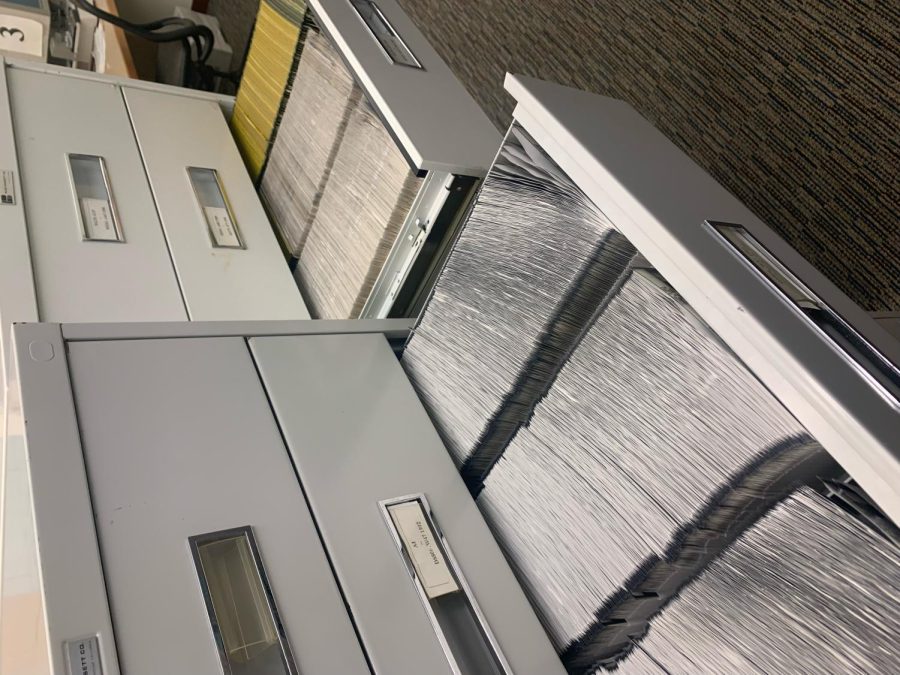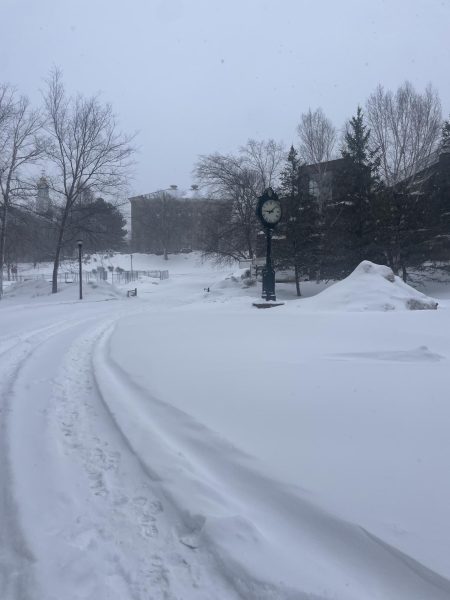University Donates Collection to Internet Library Archives
Joining a growing number of academic libraries, the Colgate University Library donated to the Internet Archive to help preserve websites, music, movies and millions of books, and provide universal access to information.
Joshua Finnell, interim associate librarian and head of University research and instruction, emphasized the importance of this new initiative.
“This digitization project is a joint effort between the Internet Archive and its Federal Depository Library Program library partners,” Finnell said. “The Colgate University Libraries has been a congressionally designated depository for the U.S. Government documents since February 7, 1902. The specific goal of this program is to not only digitize the microfilm and create free access to researchers, historians, scholars, people with print disabilities and the general public but also preserve and retain the physical collection.”
Finnell detailed his hopes for the program, emphasizing why it is important that the University does work like this.
“Like all library materials (physical or digital), my sincere hope is that the information is more broadly accessible and used across the globe for research and general public interest,” Finnell said. “This is a really unique collaboration with the Internet Archive and I hope our collections augment the donations from all the other colleges to make the government documents microfiche collection even richer in its breadth and scope.”
Microfiche are transparent sheets of film that contain several miniature photographs of documents such as journals or newspapers. When placed under a microfiche reader, the photographs are magnified to a readable size, making it possible to store pages from entire collections on just one sheet of film.
University Librarian Courtney Young also commented on the initiative and what inspired Colgate to make the decision to join these other libraries.
“Our former librarian responsible for government documents, Debbie Krahmer, learned about this program, gathered more information about the process, and brought it up during a library faculty meeting,” Young said. “The library faculty were in enthusiastic agreement that participating in this initiative to provide digitization and long-term preservation for this microfiche collection was the right thing to do.”
Krahmer, a former librarian at Colgate and current librarian at Cornell University, had a large hand in the donations and commented further on what made the donation necessary.
“Basically, we had a huge collection of these microfiche documents which were difficult to use, and they were taking up some really central space on the 3rd floor,” Krahmer said. “In order to make room for other programs and collections, I started to look into what we could do with the materials. It was starting to look like we’d be sending them to a landfill when I came across an article talking about a library donating microfiche to the Internet Archive.”
Krahmer further elaborated on the process of adding these digital collections to the archive.
“It was super easy. Once I got the initial go-ahead by our library director, Courtney Young, I reached out to the Archive to offer them our materials. Once the donation paperwork was filled out, and we shared what cataloging information we had for the collection, we coordinated with the Archive to have the microfiche and microfiche cabinets palletized (wrapped up in plastic and strapped to pallets), then they sent a moving van to pick them up and take them to their local East Coast Archive,” Krahmer said.
Krahmer also commented on what this project and donations like this can inspire and what can come from it.
“I hope other libraries will donate their microfiche instead of trashing it, so we can retain access to this information,” Krahmer said. “I like to think that there was something special hidden in those cabinets, and it’ll change someone’s life to finally have access to it.”








Susan Tillman • Oct 4, 2022 at 4:38 pm
Back in the day libraries were thought of as passive institutions.
Not so anymore. Libraries not only preserve materials and check them out to people, but also act together politically to ensure materials are freely available.
The Internet Archive remains a big part of these initiatives. In the past university libraries have often been seen as gatekeepers. They ensured that access to materials was available to faculty and students, but not to the public as a whole.
It’s wonderful to see The Colgate Library making materials available to the public via The Internet Archive.